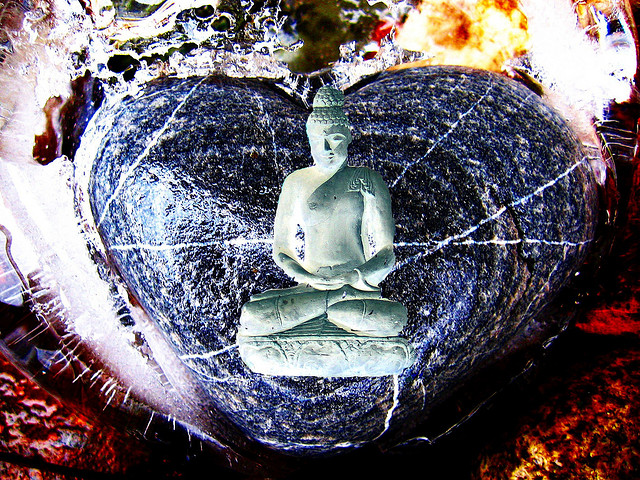“It is through the alignment of the body that I discovered the alignment of my mind, self, and intelligence.” ~ B.K.S. Iyengar, 1918 – 2014.
In the West, we are taught that “grace” is something outside of ourselves.
God is in heaven, the devil in hell, and that we pathetic humans generally are sliding toward Lucifer’s zip code.
We are even indoctrinated with the concept of “original sin.”
How about that as a definition of “bad to the bone?”
“Amazing grace! How sweet the sound that saved a wretch like me.” And wretched we truly are, cast out and homeless almost from birth. We are taught our bodies are frail and ‘sinful. Salvation or unification seems impossible in this lifetime. God is holy; his followers are sinful. That was the reality in the Old Testament.
“Yea, when this flesh and heart shall fail, and mortal life shall cease, I shall possess beyond the veil, a life of joy and peace.”
Grace, then, is alien for most of us. Bound in shackles of sin and shame, we drag our way through our mortal lives believing, hoping and praying that beyond the burden of humanity, somewhere in heaven, we will again be aligned—body, mind, spirit—and finally achieve a feeling of joy and peace.
Mythologist Joseph Campbell blames this loss of harmony on the Judeo-Grecian belief in the superiority of the mind over the body. Psychologist Dr. Alexander Lowen explains, “When mind and body are separated, spirituality becomes an intellectual phenomenon—a belief rather than a vital force—while the body becomes simply flesh. The dispirited body is characterized by its sluggishness and lack of grace. When the spirit moves the body, it quivers with excitement and bounds with enthusiasm.”
Lowen contends that true gracefulness is not something to be learned, but a “natural endowment” of human existence.
By reuniting the body and spirit, we can begin to view our bodies as conduits or energetic systems connecting the infinite with the finite. When our body’s circuits are open and flowing, we literally radiate deep spiritual energy into our environment. The divine spirit is experienced as the natural gracefulness of the body and the graciousness of the person’s attitude toward all of nature.
Lowen says, “Grace is a state of holiness, of wholeness, of connection to life, and of unity with the divine.”
If yoga is a means to experience grace, then is it a religion? “Guru-ji” B.K.S. Iyengar died this week, leaving behind a vast legacy of yoga knowledge and inspiration. Was he a “guru,” what we think of in the West as a religious leader or saint? He didn’t think so.
“I set off in yoga 70 years ago when ridicule, rejection and outright condemnation were the lot of a seeker through yoga even in its native land of India. Indeed, if I had become a sadhu, a mendicant holy man, wandering the great trunk roads of British India, begging bowl in hand, I would have met with less derision and won more respect.”
To take personal responsibility to stop the free fall from grace and to experience a deep personal sense of empowerment is very uncomfortable in many organized religions.
Recently, parents in Encinitas, California sued the school board because teaching yoga as part of the physical education program and the use of some Sanskrit terms was “a way to proselytize Eastern religion.” A San Diego County judge ruled against the charge that yoga is a religion. “Yoga as it has developed in the last 20 years is rooted in American culture, not Indian culture. It is a distinctly American cultural phenomenon. A reasonable student would not objectively perceive that Encinitas School District yoga training advances or promotes religion.”
We know who planted those roots of yoga in our culture decades ago, guru-ji.
You showed us through your personal practice and humanity how each of us can reclaim our natural sense of grace. You were so practical.
“Stand on your feet. Feel your feet. How can you know God, if you don’t know your big toe?”
Yoga is a personal and humane path to wholeness and peace. (Yes, you can say it—holiness.) Perhaps the yoga mat is the only altar many of us require.
Namaste Iyengar. You left the world a better place, and your spirit will reverberate through us long after your passing. Namaste.
~
~
Love elephant and want to go steady?
Sign up for our (curated) daily and weekly newsletters!
Editor: Emily Bartran
Photo: Hartwig HKD/Flickr












Read 0 comments and reply